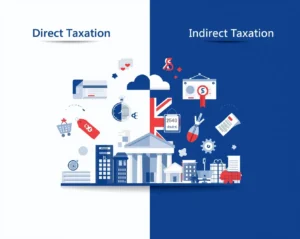In the UK, businesses are required to submit certain documents to maintain their legal status and comply with the Companies Act 2006. One of the most essential forms that a company must file annually is the Confirmation Statement (CS01). This form is crucial in keeping the company’s details updated with the Companies House and ensuring transparency in its operations. This article will explain in depth the concept of CS01, its importance for UK businesses, and its implications for both directors and shareholders.
Table of Contents
ToggleWhat is CS01?
The Confirmation Statement (CS01) is an official document that all UK companies must file with the Companies House. The form ensures that the information about a company, such as its registered office, directors, shareholders, and share capital, is up-to-date and accurate. The CS01 has replaced the Annual Return (AR01) since 2016, although the filing process and objectives remain similar. Its purpose is to verify that the company’s data held by the Companies House is accurate at the time of submission.
The CS01 is a legal requirement under the Companies Act 2006, and failure to file it or submitting incorrect information can result in penalties, fines, or even the striking off of the company from the register.
Why is CS01 Important for UK Companies?
Filing the CS01 is vital for several reasons:
- Legal Compliance: It ensures that the company complies with the requirements of the Companies Act 2006.
- Transparency: By submitting accurate information, the company promotes transparency to shareholders, investors, and the public.
- Up-to-date Company Details: It allows businesses to keep their registered information current, making it easier for authorities, stakeholders, and the general public to verify details about the company.
- Preventing Fraud: Regularly updating company information helps reduce the risk of identity theft or fraudulent activities involving the company’s name.
How CS01 is Calculated
For most companies, the CS01 is a straightforward form where they confirm that the details held by Companies House are still correct. However, for certain companies, especially those dealing with bonds or complex shareholding structures, the process of completing the form involves understanding how to calculate certain financial elements.
How is CS01 Calculated?
The CS01 itself is not a document that involves heavy calculations, but some aspects of it may require financial calculations. For instance, companies that issue bonds will need to include details about their bondholders, including any changes to the bond register.
For companies that deal with bonds, a common term used is CS01 for bonds. When bond issuers submit their CS01, they need to provide the details of any changes in bondholders or the status of bond issues over the year. Bond investors might also need to calculate the CS01 for sale as it relates to the transfer of bonds or the change in ownership of debt securities. However, the actual “calculation” of CS01 primarily involves updating the necessary data fields on the form, not performing complex financial calculations.
CS01 for Bonds
For bond issuers, the CS01 may require additional details, especially when bonds are sold or transferred or if any significant changes occur within the company’s structure or debt obligations. This ensures that the information on the bond register is accurate, providing stakeholders with transparent and up-to-date information on the company’s financial commitments.
How to Calculate CS01 of a Bond
When companies calculate the CS01 of a bond, they focus on ensuring that the information about bondholders is correct. They may need to report any changes in ownership or the number of bonds in circulation, which could impact the company’s financial standing and debt obligations.
How to File CS01
Filing the CS01 is an essential part of the company’s ongoing legal obligations. Here’s a step-by-step guide on how to file CS01:
- Access the Form: The CS01 form can be completed online via the Companies House web filing service or submitted on paper. To complete it online, you’ll need to create an account with Companies House if you haven’t done so already.
- Review Your Company Details: The form asks for confirmation of your company’s details, including the company’s registered office address, directors, secretary (if applicable), shareholders, and share capital. If any details have changed, make sure to update them.
- Complete the Form: The form will guide you through various sections, asking you to confirm that the information on file is correct. If there have been any changes in shareholders, directors, or other vital information, you must update the form accordingly.
- Submit the Form: Once you have reviewed the form and made any necessary updates, submit it electronically or by post. The filing fee will depend on the method you choose to file.
- Pay the Fee: Filing the CS01 form costs £13 for online submissions and £40 for paper submissions. Ensure that you make the payment as required.
CS01 Form with Updates
The CS01 form may be updated annually to reflect changes in your company’s details. Any changes, such as changes in directors, shareholders, or the company’s financial structure, need to be updated during the filing process. Recent updates to the CS01 form have included more detailed reporting on shareholdings and the introduction of specific questions regarding the company’s ownership structure.
What Does CS01 Mean for UK Companies?
The CS01 is essential for ensuring that companies remain in good standing with the Companies House. The form acts as an annual check-in for businesses, confirming that the company’s registration details are accurate and up to date.
CS01 vs CR01
A common point of confusion is the difference between the CS01 and CR01 forms. While both forms are related to company registration, they serve different purposes:
- CS01: The Confirmation Statement, which confirms and updates the company’s details on an annual basis.
- CR01: The incorporation document, filed when a company is first created. This form includes the company’s foundational details, such as its name, address, and directors.
CS01 Risk and How It Affects Companies
One of the key risks associated with CS01 is CS01 risk, which refers to the potential consequences of failing to file the form or submitting incorrect information. Companies that do not file their CS01 on time risk facing fines or penalties. In extreme cases, repeated failures to submit the form may lead to the company being struck off the Companies House register, effectively dissolving the business.
CS01 Companies House
The role of Companies House in processing the CS01 is critical. Companies House is responsible for maintaining the public register of companies in the UK. It acts as the central authority for all company-related filings and ensures that the information provided by companies is correct and up-to-date.
CS01 and DV01 Explained
DV01 (Dollar Value of 1 Basis Point) is a financial term primarily used in bond markets to measure the price sensitivity of a bond to a 1 basis point change in interest rates. While CS01 is not directly related to DV01, there are instances where companies with bonds need to consider both metrics. Bond issuers might calculate CS01 to assess the impact of potential changes in the bond market and ensure that their bond issuance is accurately reflected in their company’s filing.
How Much Does CS01 Cost?
The cost of filing a CS01 varies depending on the method used:
- Online Submission: £13
- Paper Submission: £40
What Does CS01 Mean for UK Companies?
The CS01 is a critical part of maintaining compliance with UK law. It ensures that companies’ data is accurate and up-to-date, allowing stakeholders to verify the company’s information and allowing the company to continue operating legally.
Demographics and Usage of CS01 in the UK
The CS01 form applies to all UK-based companies, from large corporations to small businesses. Whether you’re a tech startup, a retail business, or a public sector company, the process of filing the CS01 ensures that your business remains legally registered and compliant with UK regulations.
FAQ:
Here are four frequently asked questions (FAQ) related to the Confirmation Statement (CS01):
What happens if I miss the deadline for filing the CS01 form?
If you fail to submit the CS01 form by the deadline, your company may incur a penalty. The Companies House could impose a fine, and if the form is not filed for an extended period, the company might be struck off the register. It’s crucial to file the CS01 on time to avoid these risks and ensure your company remains compliant with UK company law.
Can I make changes to the CS01 after submission?
Once the CS01 form is submitted, any corrections or updates would require filing an amended form. If there are material changes to your company’s details after submission, you must update them on the next CS01 filing or make the necessary amendments through additional filings to Companies House.
Is the CS01 form the same as the Annual Return?
No, the CS01 form replaces the Annual Return (AR01) as of June 2016. While both documents serve the purpose of confirming and updating company details, the CS01 has a broader focus and includes additional questions related to shareholdings and the company’s ownership structure. The main difference is that the AR01 was filed yearly, whereas CS01 focuses on keeping the company’s records up-to-date continuously.
How do I file the CS01 form online?
To file the CS01 online, you need to create an account on the Companies House web filing service. Once registered, log into your account, select the CS01 form, and verify the details of your company. You will need to confirm that all information is correct and pay the filing fee. Online submission costs £13, and the form is typically processed more quickly than paper filings.
Conclusion
In summary, the Confirmation Statement (CS01) is an essential legal requirement for all companies in the UK. The form helps ensure transparency, legal compliance, and up-to-date information, which is crucial for directors, shareholders, and investors. Whether you are a small business owner or part of a large corporation, understanding how to file the CS01 correctly and on time is vital for maintaining the health and longevity of your business. Always ensure that your company’s details are correct and file your CS01 promptly to avoid any legal risks or penalties.
For further information or to submit your Confirmation Statement, visit the official Companies House website.





